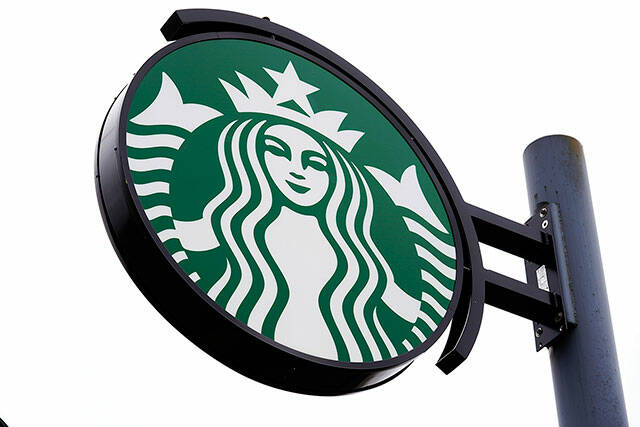By Dee-Ann Durbin / Associated Press
Starbucks’ sales climbed to record levels in its fiscal second quarter, but its profits took a hit from climbing labor costs.
And those costs are set to grow even higher in the coming months as Starbucks introduces new pay raises and other benefits to head off a growing unionization movement.
The Seattle coffee company —— which welcomed back former CEO Howard Schultz last month as its interim leader —— said revenue rose 15% to a record $7.6 billion in its 13-week quarter, which ended April 3. That was in line with Wall Street’s estimates, according to analysts polled by FactSet.
But net earnings rose just 2% to $674 million. Starbucks’ adjusted earnings of 59 cents per share fell short of analysts’ forecast of 60 cents.
Starbucks noted that it faced higher employment costs during the quarter. Last fall, the company announced a $1 billion investment in employee wages and benefits in an effort to lift U.S. workers’ pay to at least $15 per hour by this summer.
On Tuesday, after a series of meetings with workers around the country, Schultz unveiled $200 million in additional worker pay and training. That includes pay raises for employees who have been at the company for at least two years as well as a doubling in training time for new baristas and shift supervisors. Starbucks is also reintroducing a coffee mastery program for employees and considering other benefits like increased sick time.
But there’s a catch: Workers who have voted to unionize or stores that have petitioned to hold a union election won’t be eligible for those benefits. Instead, U.S. labor law requires stores to negotiate their own contracts with Starbucks.
As of Tuesday, workers at more than 250 U.S. stores had filed petitions with the National Labor Relations Board to hold union elections, labor organizers said. Fifty of those stores had voted to unionize with Workers United, a branch of the Service Employees International Union.
Schultz opposes the unionization effort, insisting the company functions better when it works directly to its employees. But he noted that employees are under “tremendous strain” due to strong customer demand and pandemic-related changes in the business, including a surge in mobile and drive-thru orders. New investments will improve employee recruiting and retention, he said.
“We must reintroduce joy in the customer and emotional connection back into the partner experience,” Schultz said Tuesday in a conference call with investors.
Starbucks said its same-store sales —— or sales at stores open at least a year —— rose 7% globally in the second quarter, surpassing Wall Street’s estimate of 6.5%. That was largely on the strength of the business in North America, where same-store sales rose 12%. U.S. price increases in December didn’t appear to dampen demand.
International same-store sales fell 8%, largely due to coronavirus restrictions in China. China, which is Starbucks’ largest market outside the U.S., saw same-store sales plummet 23% in the quarter, the company said.
Starbucks shares were up 5% in after-hours trading Tuesday.
Talk to us
> Give us your news tips.
> Send us a letter to the editor.
> More Herald contact information.

























